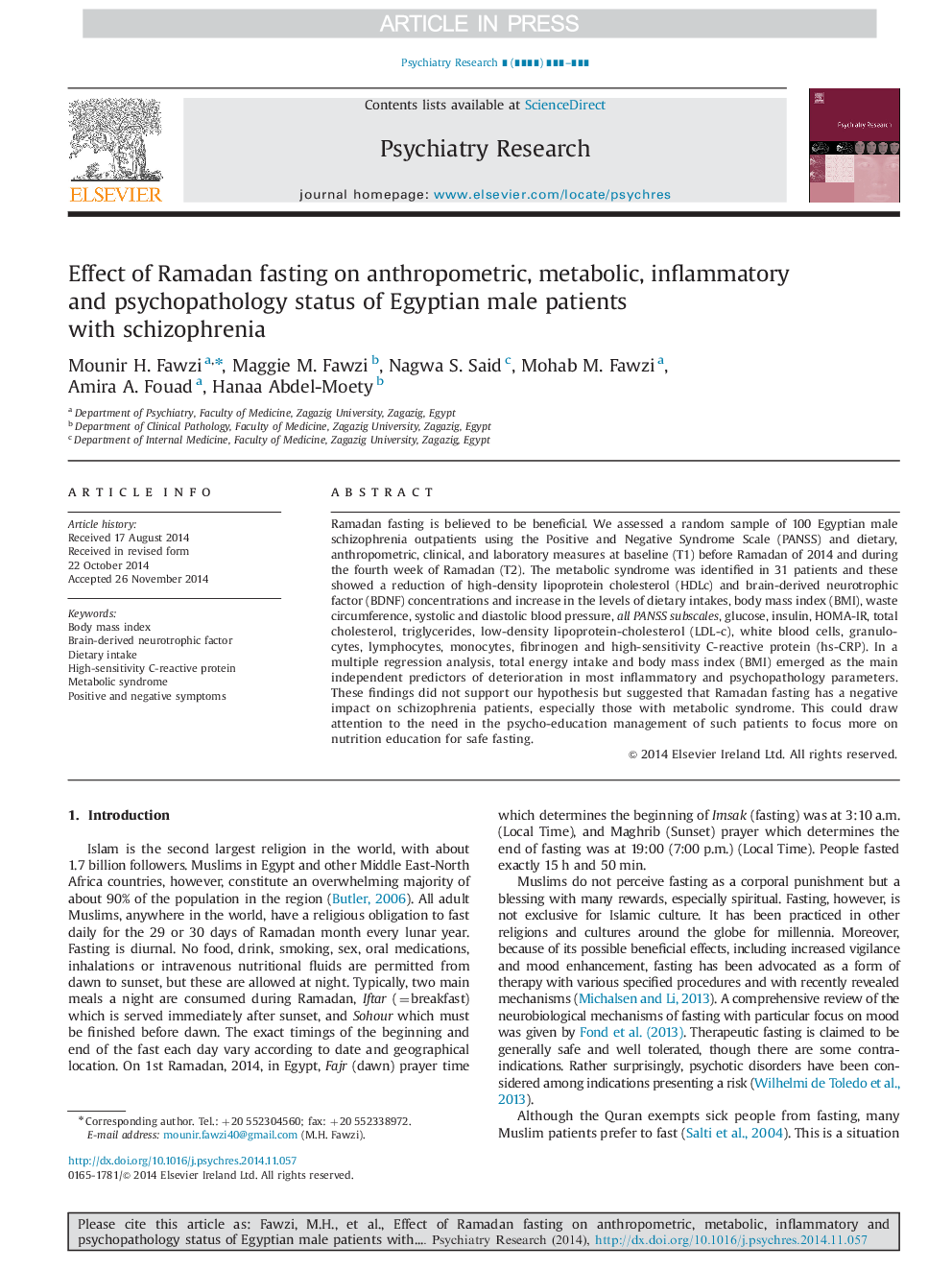| Article ID | Journal | Published Year | Pages | File Type |
|---|---|---|---|---|
| 10304152 | Psychiatry Research | 2015 | 8 Pages |
Abstract
Ramadan fasting is believed to be beneficial. We assessed a random sample of 100 Egyptian male schizophrenia outpatients using the Positive and Negative Syndrome Scale (PANSS) and dietary, anthropometric, clinical, and laboratory measures at baseline (T1) before Ramadan of 2014 and during the fourth week of Ramadan (T2). The metabolic syndrome was identified in 31 patients and these showed a reduction of high-density lipoprotein cholesterol (HDLc) and brain-derived neurotrophic factor (BDNF) concentrations and increase in the levels of dietary intakes, body mass index (BMI), waste circumference, systolic and diastolic blood pressure, all PANSS subscales, glucose, insulin, HOMA-IR, total cholesterol, triglycerides, low-density lipoprotein-cholesterol (LDL-c), white blood cells, granulocytes, lymphocytes, monocytes, fibrinogen and high-sensitivity C-reactive protein (hs-CRP). In a multiple regression analysis, total energy intake and body mass index (BMI) emerged as the main independent predictors of deterioration in most inflammatory and psychopathology parameters. These findings did not support our hypothesis but suggested that Ramadan fasting has a negative impact on schizophrenia patients, especially those with metabolic syndrome. This could draw attention to the need in the psycho-education management of such patients to focus more on nutrition education for safe fasting.
Keywords
Related Topics
Life Sciences
Neuroscience
Biological Psychiatry
Authors
Mounir H. Fawzi, Maggie M. Fawzi, Nagwa S. Said, Mohab M. Fawzi, Amira A. Fouad, Hanaa Abdel-Moety,
